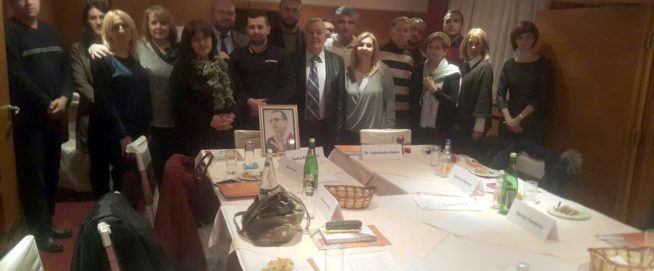
News
 Novi Pazar, Serbia
Novi Pazar, Serbia Teachers from Serbia’s Sandžak Endorse Introduction of Intercultural Education

On February 11, 2017, CIG organized in Novi Pazar a roundtable session for professors and teachers from several elementary and high schools from the Serbian region of Sandžak/Southwestern Serbia. The session was initiated by the members of the Society for Bosnian Language from Novi Pazar. The aim of the session was to discuss intercultural education, the topic from the previous sessions of the Regional Forum,, by those who will implement it in the future. Participants also discussed the content of the draft recommendations of the Regional Forum on intercultural education and developed five additional recommendations. A complete report from the meeting is available below in Serbian.
Following are the additional recommendations that were created by the experts:
- Radio Television of Serbia (RTS) should introduce and increase the amount of educational programs that cover issues of importance for national minorities in Serbia.
- The Ministry of Education of Serbia should prepare a universal model of extra-curricular activities with intercultural contents for elementary schools. The ministry should also offer financial support. Municipalities and civil society should also provide funds. Schools themselves are responsible for introducing local specificities through their annual development plans. Possible activities in this regard could include school networking, exchange of students, study visits, exchange of students and teachers within same regions, joint trips of several schools from different cities, etc. One way of linking is networking of schools’ directors, with the goal to stimulate the creation of decisions concerning interculturality also on the level of decision-making.
- It is necessary to include the subject “the language of the environment” (i.e. minority language classes) for members of the majority community in the municipalities where national minorities are numerous (at least 15% of the total municipal population).
- The ministry and the national councils should promote bilingualism as a model of education through actively informing schools and parents. It is necessary to present the advantages and disadvantages in the implementation of existing models.
- During the process of EU integration, through the reform processes related to Chapter 23 of Serbia’s EU accession negotiations, the textbooks will be improved with inclusion of topics that are of importance for the representation of national minorities. It is vital to insist that topics related to interculturality should become part of the textbooks’ content. It would be best to form some sort of regional commissions, composed of local professors and teachers, that would be formed by thematic areas and their task would be to propose the content for textbooks. The second step would be to form an expert working group that would incorporate the proposed content according to thematic areas. Minority Councils and above mentioned regional commissions should propose teachers and professors who will be members of the working group.








